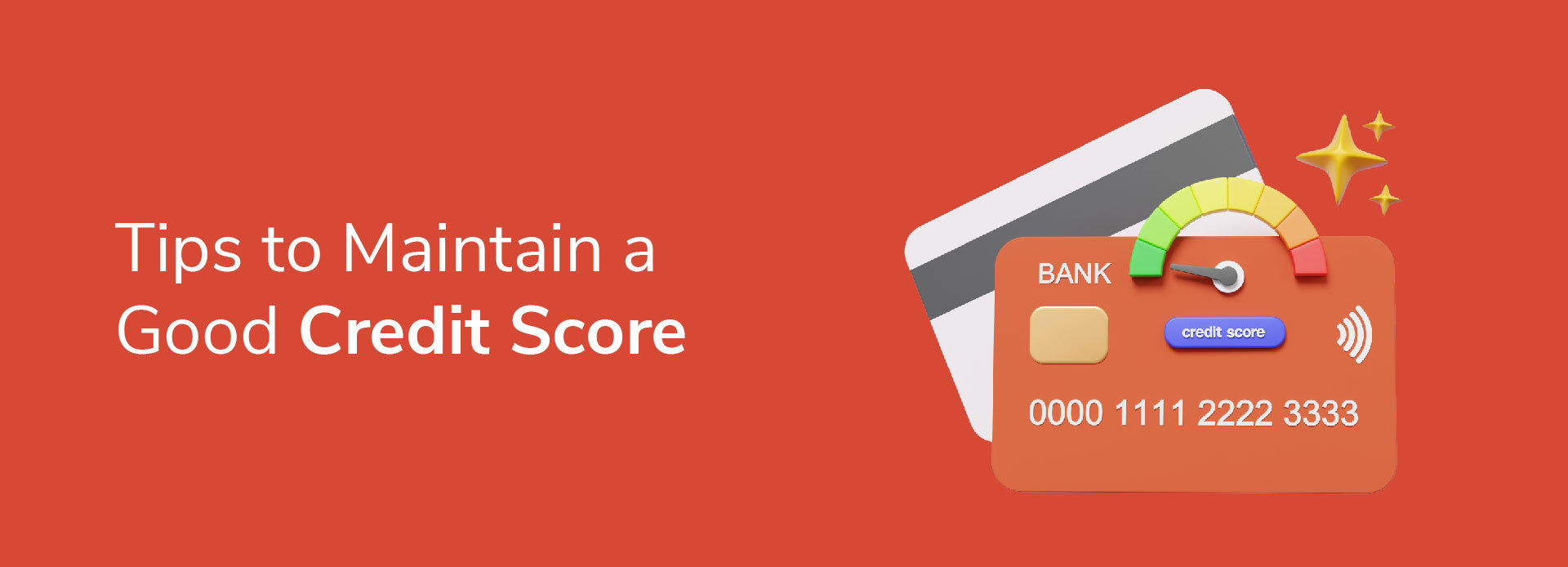
How to Maintain a Good Credit Score (5 Best Habits)
17 June 2024 | By INDIE
Credit scores hold significant power over credit card holders’ financial lives. From buying a home to getting a credit card or applying for a home loan, your credit score influences many aspects of your financial well-being. It defines your financial reputation, reflecting how trustworthy you are as a borrower. Most lenders use this three-digit number to assess your creditworthiness.
In this blog post, we'll explore why maintaining a good credit score is crucial and provide you with five essential habits to help you understand how to maintain a good credit score in India.
1. Pay EMIs on Time
Your payment history contributes significantly to your credit score, and missing even one EMI can have a detrimental effect. Late payments incur late fees and tarnish your credit report, making it harder to secure credit in the future. This is why timely EMI payments are vital for maintaining a good credit score.
You can consider setting up automatic payments or reminders to avoid missing timely payments. This way, you demonstrate reliability to lenders by consistently meeting your EMI obligations, which can positively impact your creditworthiness over time. Additionally, prompt EMI payments help you avoid accumulating debt and interest charges, contributing to your overall financial health.
2. Monitor Credit Utilization Ratio
Your credit utilization ratio refers to the percentage of the available credit that you're currently using. It's a crucial factor in determining your credit score, with lower ratios generally viewed more favorably.
To calculate your credit utilization ratio, divide the total credit card balances by the total credit card limits and multiply by 100. It's essential to keep this ratio as low as possible, ideally below 30%. High credit utilization suggests a higher risk of default to lenders, potentially lowering your credit score.
Regularly monitoring your credit utilization ratio allows you to adjust your spending habits accordingly and avoid maxing out your credit cards. It will also help you demonstrate responsible credit management and learn how to maintain and improve your credit score.
3. Check Eligibility Before Applying for a Loan
Each loan application results in a CIBIL inquiry, which can temporarily lower your credit score. Checking your eligibility beforehand allows you to gauge your likelihood of approval based on your credit score, income, and existing debt obligations. Many lenders offer pre-qualification tools that provide insight into the loan terms you may qualify for without affecting your credit score.
You can choose lenders likely to approve your application by researching and comparing loan options, thereby minimizing the impact on your credit score. This proactive approach can help you make informed borrowing decisions and protect your creditworthiness in the long run.
Recommended Read: Understanding Personal Loans and How to Apply
4. Check Your Credit Score Periodically
Your credit score reflects your creditworthiness and can influence how much credit you can access and secure favorable terms. You can identify inaccuracies, unauthorized activity, or signs of identity theft that may harm your score by checking your credit score periodically.
Additionally, many credit card companies and financial institutions now offer free credit reports. By staying vigilant and monitoring changes in your credit score, you can take proactive steps to address any issues related to maintaining a good credit standing
5. Avoid Borrowing Multiple Loans Simultaneously
Borrowing multiple loans or personal credit line can strain your finances and negatively impact your credit score. Each loan application triggers an inquiry on your credit report. Moreover, taking on too much debt increases your debt-to-income ratio, making you appear riskier to lenders. This can result in higher interest rates or outright loan denials.
As a rule of thumb, borrow only the amount you need and can comfortably repay. Prioritize paying off existing loans before considering new ones to avoid overextending yourself financially. If you must borrow multiple loans, do so strategically and consider factors such as interest rates, repayment terms, and your ability to manage the additional debt responsibly.
Disclaimer: The information provided in this article is generic and for informational purposes only. It is not a substitute for specific advice in your circumstances. Hence, you are advised to consult your financial advisor before making any financial decision. IndusInd Bank Limited (IBL) does not influence the views of the author in any way. IBL and the author shall not be responsible for any direct/indirect loss or liability incurred by the reader for making any financial decisions based on the contents and information.





